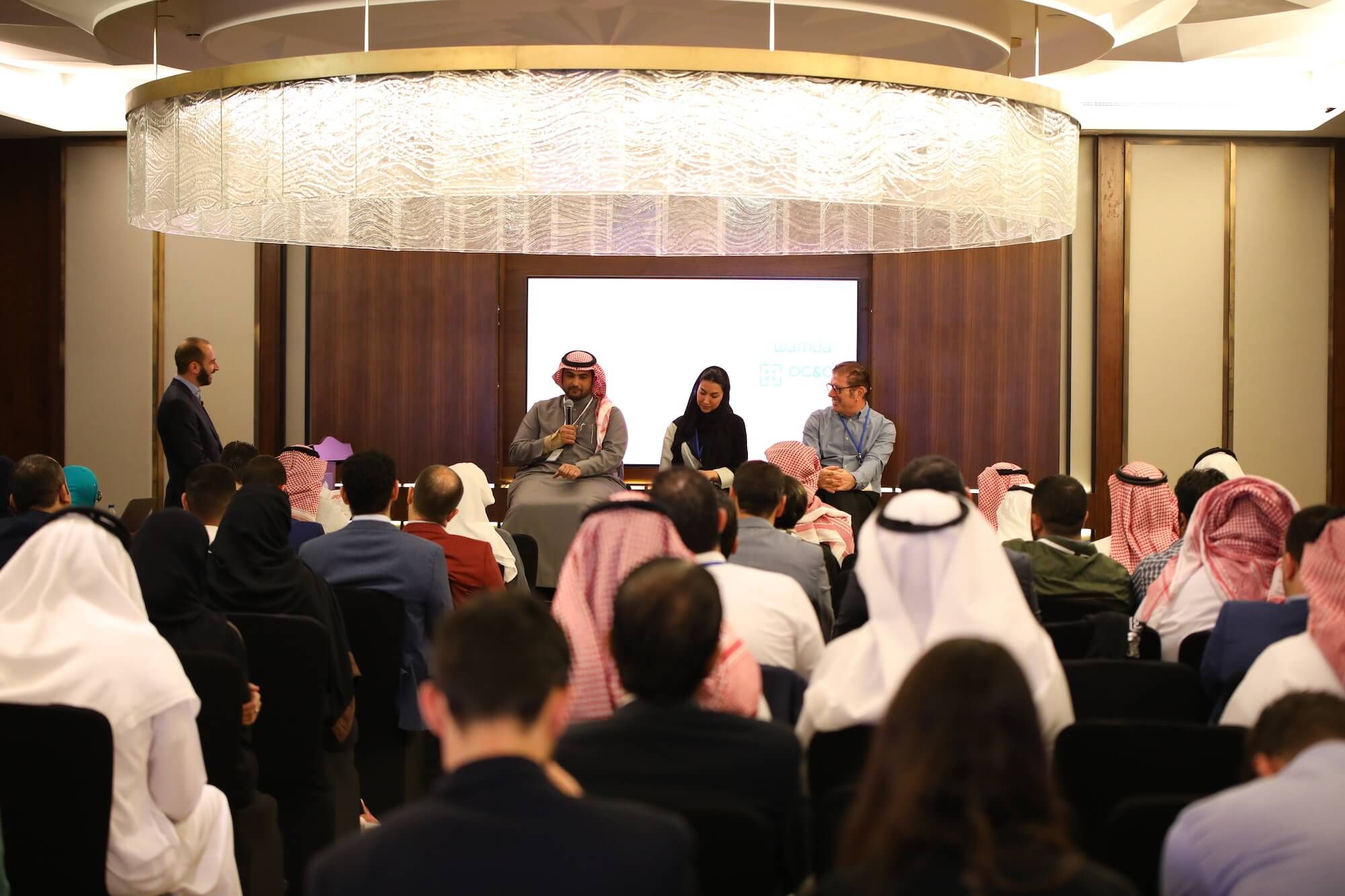Saudi Arabia: A nascent ecosystem with huge potential

Saudi Arabia’s tech startup ecosystem is small and nascent compared to its vast oil sector. The contribution of its knowledge economy is concentrated in certain pockets while the small-to-medium-sized sector accounts for just 20 per cent of gross domestic product (GDP). Lending to these companies is among the lowest in the region at around five per cent, but change is afoot as entrepreneurship gains momentum in the country.
The findings, published in a report by Wamda Research Lab in collaboration with Google and OC&C Strategy Consultants were revealed at Wamda’s flagship Mix n’ Mentor event in Riyadh on 22 November.
The report highlights the state of the entrepreneurial ecosystem and the challenges and opportunities facing startups in the Kingdom of Saudi Arabia (KSA).
As the region’s largest economy, Saudi Arabia is an attractive market for startups and corporations alike. The only problem is that it is still an economy heavily reliant on the oil sector, which constitutes 50 per cent of gross domestic product (GDP). With the decline of the price of oil in 2014, Saudi Arabia has been working to diversify its economy and entrepreneurship has become a pillar for sustainable growth, entrenched into the Vision 2030 economic plan.
“You cannot escape the fact that technology is transformative,” said Selim Edde, head of public policy and government relations for the Middle East and North Africa at Google. “Today, digital is not a tool, it is not an accelerator, it’s a game changer, it shapes your strategy.”
As governmental support and initiatives launched over the past couple years begin to take effect, entrepreneurship is expected to rise.
The youth, those aged 30 and under, account for 70 per cent of the population and unemployment is at almost 13 per cent.
Calling them “data natives”, Selim believes it is essential for startups to cater to this young demographic with the understanding that “mobile is an extension of their arm”.
The majority of startups that have emerged are software as a service (SaaS) or e-commerce, while startups for the King Abdullah University of Science and Technology (KAUST) offer more deep-technology solutions.
There have been no significant exists valued at more than $100 million and the sector tends to be a bigger consumer rather than creator of digital technologies.
But there has been progress and a dynamism in the sector. There is a very strong political commitment to developing a solid science, technology and innovation base in KSA and as a result, support for the tech ecosystem has grown.
The authorities made available a $1bn ‘fund of funds’ alongside other financing programmes. There are more incubators, accelerators, co-working spaces and venture capital (VC) activity has been growing.
“We are definitely seeing opportunities where regulators have paid attention to the sector itself,” said Nejoud Al Mulaik, director at Fintech Saudi. “We’re showing interest in terms of moving around regulations and ease of doing business.”
During the roundtable sessions with mentors who included representatives from government entities as well as the private sector, startups shared their challenges. Common issues included raising angel investment, acquiring talent and the disconnect between the various government and licensing bodies and the authorities.
“For Saudi Arabia it is clear you have all the elements, but they are looking at one another and they are not moving,” said Edde. “Connecting, collaborating, co-innovating to create opportunities for the future is extremely important.”
For Salman Al-Suhaibaney, founder and chief executive officer at Morni, a roadside assistance app, there needs to be more acute support for startups at different stages of growth.
“Today, it’s much easier for entrepreneurs to determine what they want,” he says. “There needs to be support at every stage and not the same set of solutions that can be applicable to everyone.”
But for all its challenges, Saudi Arabia’s well-connected, well-educated, young population has the opportunity to grow its knowledge economy substantially over the next few years.


